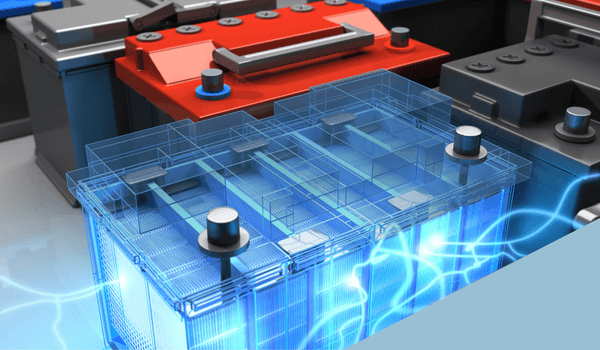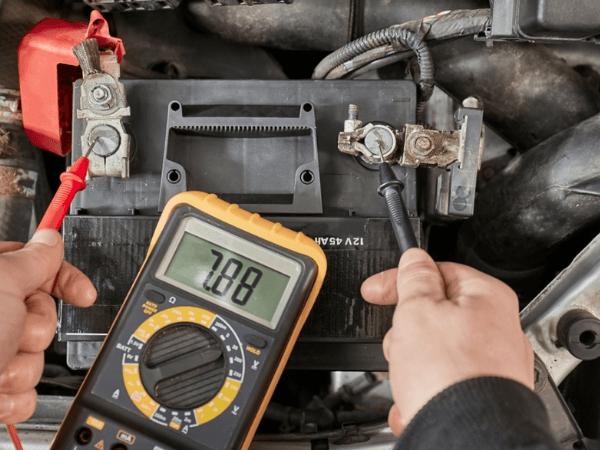Car battery problems can affect your travel plans. So, it’s better to understand how it works and charge itself to avoid unnecessary inconveniences.
A car battery is regarded as the soul and life of your vehicle. The battery powers everything, including the headlights and engine. It’s why you should take battery matters seriously.
However, no matter how powerful your car’s battery is, it can’t last forever.
But can a car’s battery recharge itself? The answer is no. Why? First, the car battery cells don’t produce energy. This means that there are no other means of recharging besides an external power source.
Therefore, any car battery, whether dead or healthy, cannot recharge itself, which means that you need an external power supply to charge your battery.
Will a car battery recharge itself overnight?
It depends on the condition of the car battery. If the battery is in good condition, it is possible that it could recharge itself overnight.
However, if the battery is damaged or is not receiving enough power, it may not recharge.
How come my car battery is recharged automatically?
Even after the alternator has sufficiently supplied electrical power to vehicle features like the engine and headlights, there is always some power left, which the alternator converts to DC and reserves for recharging the car battery.
Can a dead battery recharge on its own?
No, it cannot. There is no dead car battery that can recharge by itself. Even the excess power from the alternator will fail to recharge it.
Your only solution is to jumpstart the car and leave it running for some time. Alternatively, you can use special car battery chargers which are easily bought from your local auto shop to charge the dead battery.
The best solution is to buy a new one or replace it with a reliable car battery from an auto service store.
How do car batteries charge?
The electrical components in your car are commonly referred to as alternators.
The work of the alternator is to convert mechanical energy from the engine’s crankshaft into electrical energy, or DC to AC.
This is the electrical energy responsible for powering interior lights, headlights, and air conditioners when the car is running. Excess electrical energy is converted back to DC and is reserved for charging the car battery.

What is a flat battery and how do I charge it?
The most common reason for vehicles not starting is that the car battery is flat. Your car battery can go flat because of the following things:
- You left the headlights on for a while when the car engine was off
- A problem in the electrical system is draining your battery
- Faulty battery, hence it doesn’t hold a charge
- Gear wear and tear
- Cold weather
- Corroded battery
Leaving the car in the parking lot for a long time or only driving short distances doesn’t give your battery the chance to recharge well. It may take you a day or an hour to recharge the flat car battery. It all depends on your mode of charging and the type of battery.
Should you charge the car battery or jump-start the car?
Recharging is better. However, you may need to jumpstart the car during an emergency.
Jumpstarting the battery requires using another battery from another vehicle to start your car’s engine. You connect your jump leads to the battery terminals from negative to negative and positive to positive.
Run the engine of the booster car to allow your car battery to take up a little boost charge to start the car. As the engine runs, the car’s battery starts recharging.
What is the best way to recharge the car battery?
There are two ways to recharge your car’s battery. First, while driving, and second, when the engine is idling.
However, the number of electronic instruments running determines how fast your battery recharges. Also, the car usage cycle and your initial charge time.
The fastest way to recharge your car battery is by letting the engine idle and turning off all your electronic components, such as lights, air conditioning, radio, etc.
How long do I run my car to charge a dead battery?
It all depends on your battery condition and your alternator’s performance. Also, the kind of electrical systems you are using.
Therefore, if your car is in good condition and your battery is not faulty, then driving for an hour or 30 minutes is enough to recharge it.
Is it possible to recharge a completely dead battery?
If your car only has a battery problem and it’s in good working condition, then you can recharge it. Use a jumpstart cable, push-start, or a car battery charger. First, let the engine idle and switch off all your electrical components or systems.
Is it safe to charge the battery when the terminals are still attached?
Yes, and it’s okay. You can do it when the car is in the garage. Otherwise, disconnect and recharge it within your home in a safe place.
Can a car battery recharge itself overnight?
A car battery can recharge itself overnight, but it will take longer if the battery is old or has been damaged.

How do I know the car battery is dead?
There are obvious signs to watch out for that act as a guide. You will see these signs before your car battery is rendered dead. Heed the signs if you don’t want to be left stranded on the road. Below are the signs that you need to replace the battery.
1. Slow-cranking engine
Cold weather reduces battery performance, making it take longer. Otherwise, if the temperature is good, then you may have a weak battery, a starter problem, or a bad alternator.
2. The engine starts and then dies
Normally, the car starts and then idles. However, if it dies afterward, then your battery charge is enough to only turn over your engine.
3. There are no lights
Normally, when you open the car door, the lights come on; when they don’t happen, your battery is weak.
4. Dim headlights or none
Flickering headlights combined with an engine starting problem means that you have a weak battery. It means the battery only has enough charge to power the headlights and not enough to start the engine.
However, if the headlights don’t turn on completely, then you have a dead battery.
5. Check engine lights on
It can mean many things, including the alternator not charging well. If you see this light, don’t ignore it. Consult a mechanic for troubleshooting.
6. Bloated or swollen battery
It’s a sign that your battery is bad. It’s mostly a result of hydrogen gas buildup arising from alternator overcharging. The battery is unable to release the gases faster.
7. Odd smell
It means your battery is leaking acid. You will get a rotten egg smell due to the leaking hydrogen sulfide gas.
8. Battery terminals corrosion
Corrosion shortens the battery’s lifespan. The battery cannot properly receive a charge.
Final thoughts
Always check your car battery for signs of problems like corrosion and leaks. Replace your car battery as recommended to ensure your vehicle runs efficiently without engine start issues.
Take your battery for annual testing by a certified mechanic.
Related Post:



